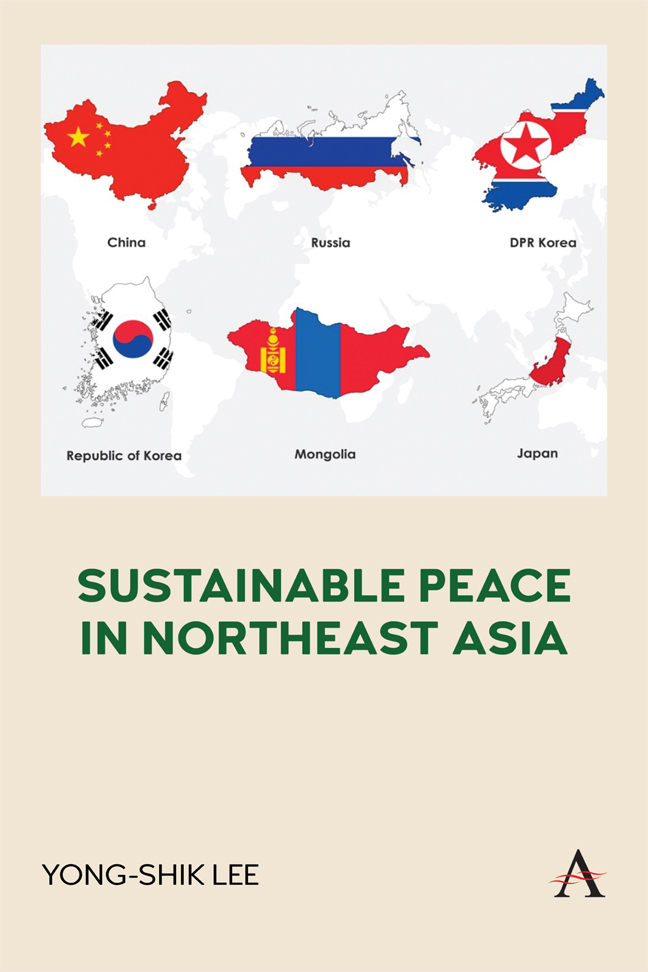Book contents
- Frontmatter
- Dedication
- Advanced Reviews
- About the Author
- Contents
- Figures
- Tables
- List of Abbreviations
- Foreword
- Preface
- Acknowledgments
- 1 Introduction
- 2 The Heritage from the Cold War—North Korea and the Nuclear Crisis
- 3 The New Asian Paradigm or Return to the Old Asia—Rise of China and its Role in the Region
- 4 A New Balancer in the Region? South Korea at the Crossroads
- 5 A Power With Rising Concerns: Escalation of Tensions Between Japan and its Neighbors
- 6 Insiders from the Outside: The United States and Russia
- 7 A Hidden Player: Mongolia and its Role in the Power Dynamics of Northeast Asia
- 8 Pathway to Peace and Stability in Northeast Asia
- Notes
- Bibliography
- Index
2 - The Heritage from the Cold War—North Korea and the Nuclear Crisis
Published online by Cambridge University Press: 29 February 2024
- Frontmatter
- Dedication
- Advanced Reviews
- About the Author
- Contents
- Figures
- Tables
- List of Abbreviations
- Foreword
- Preface
- Acknowledgments
- 1 Introduction
- 2 The Heritage from the Cold War—North Korea and the Nuclear Crisis
- 3 The New Asian Paradigm or Return to the Old Asia—Rise of China and its Role in the Region
- 4 A New Balancer in the Region? South Korea at the Crossroads
- 5 A Power With Rising Concerns: Escalation of Tensions Between Japan and its Neighbors
- 6 Insiders from the Outside: The United States and Russia
- 7 A Hidden Player: Mongolia and its Role in the Power Dynamics of Northeast Asia
- 8 Pathway to Peace and Stability in Northeast Asia
- Notes
- Bibliography
- Index
Summary
2.1 Causes of the Nuclear Crisis: Political and Economic Issues
2.1.1 North Korea's nuclear drive
North Korea's nuclear ambition is one of the most concerning military developments in Northeast Asia and beyond. North Korea is not the only country that has developed nuclear weapons outside the NPT (Treaty on the Non-Proliferation of Nuclear Weapons)—India, Pakistan, and Israel have not accepted the NPT and have developed their own nuclear weapons. Regardless, the continuing hostility between North Korea and the West renders North Korea's nuclear development particularly alarming. On October 9, 2006, North Korea announced its first nuclear test. North Korea has since developed and tested intercontinental ballistic missiles (ICBMs) capable of delivering nuclear warheads to the continental United States. While other countries—India, Pakistan, and Israel—have secured nuclear capabilities rather quietly, North Korea has openly threatened to use its nuclear weapons against the United States and South Korea. Analysts have estimated that North Korea has more than 60 nuclear weapons and could develop around 200 nuclear weapons and stockpile hundreds of ballistic missiles by 2027. North Korea's nuclear ambitions have altered the balance of military power in Northeast Asia and the security landscape of the region, creating substantial political and economic ramifications.
North Korea's nuclear development traces back to the mid-1950s, shortly after the Korean War. North Korea had the uranium deposits to develop nuclear weapons, but it lacked the technology. In 1956, North Korea signed an agreement on nuclear research with the Soviet Union, and North Korean scientists received training in nuclear technologies in Russia. In September 1959, the Soviet Union also agreed to help North Korea establish a nuclear research center. That same year, North Korea also signed a nuclear cooperation agreement with China. In 1965, the Soviet Union sold North Korea a small two- to four-megawatt research reactor, which North Korea began operating near Yongbyon in 1967. In the 1970s, however, conciliatory international developments such as the non-proliferation treaty between the United States and the Soviet Union made it more difficult for North Korea to obtain foreign assistance to build nuclear weapons. North Korea felt little urgency to develop its nuclear capabilities, though, because it perceived little or no threat from South Korea, which was then focusing on economic development. Interestingly, North Korea proposed a joint nuclear program to South Korea in the 1970s, although South Korea did not accept.
- Type
- Chapter
- Information
- Sustainable Peace in Northeast Asia , pp. 19 - 40Publisher: Anthem PressPrint publication year: 2023



